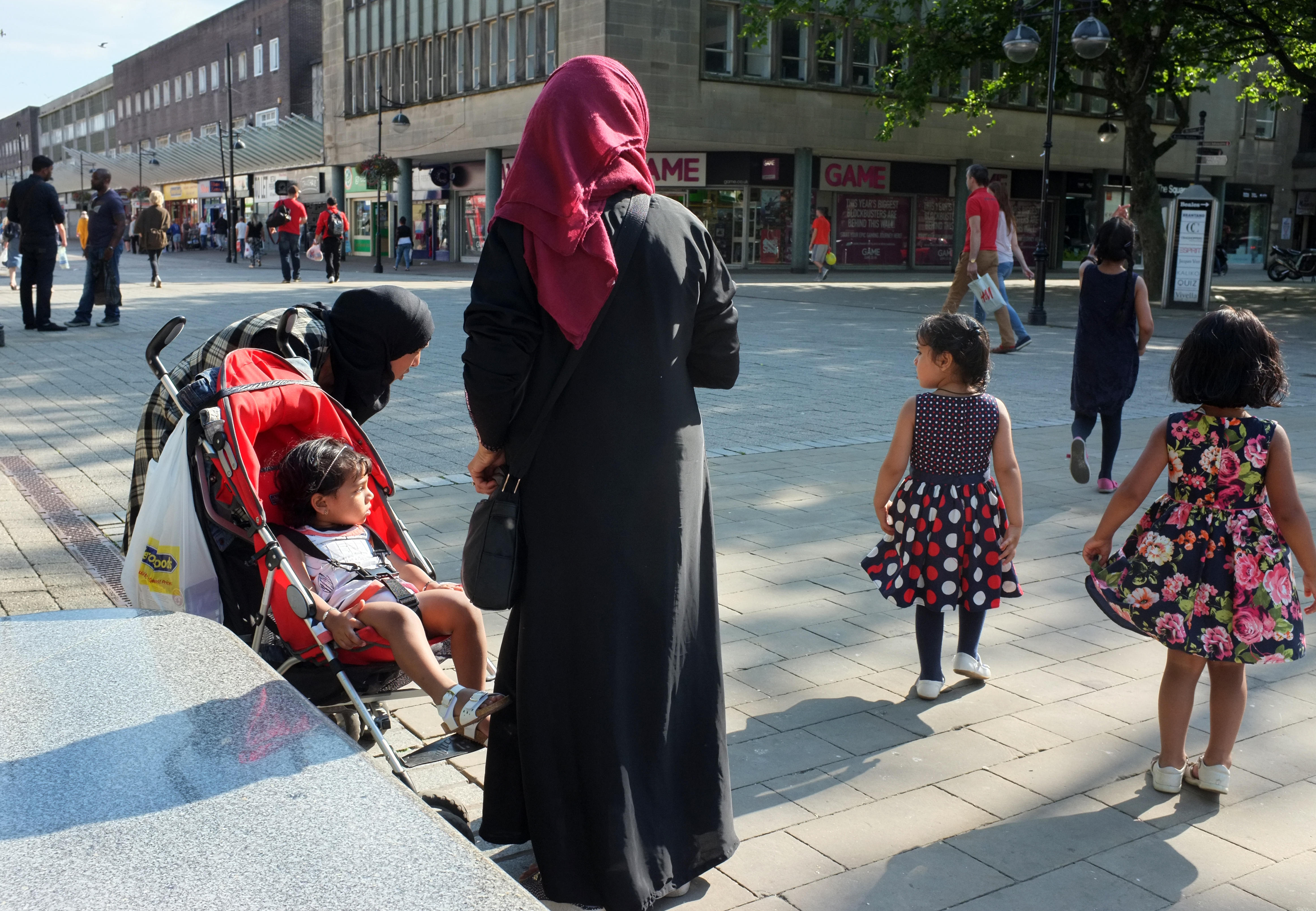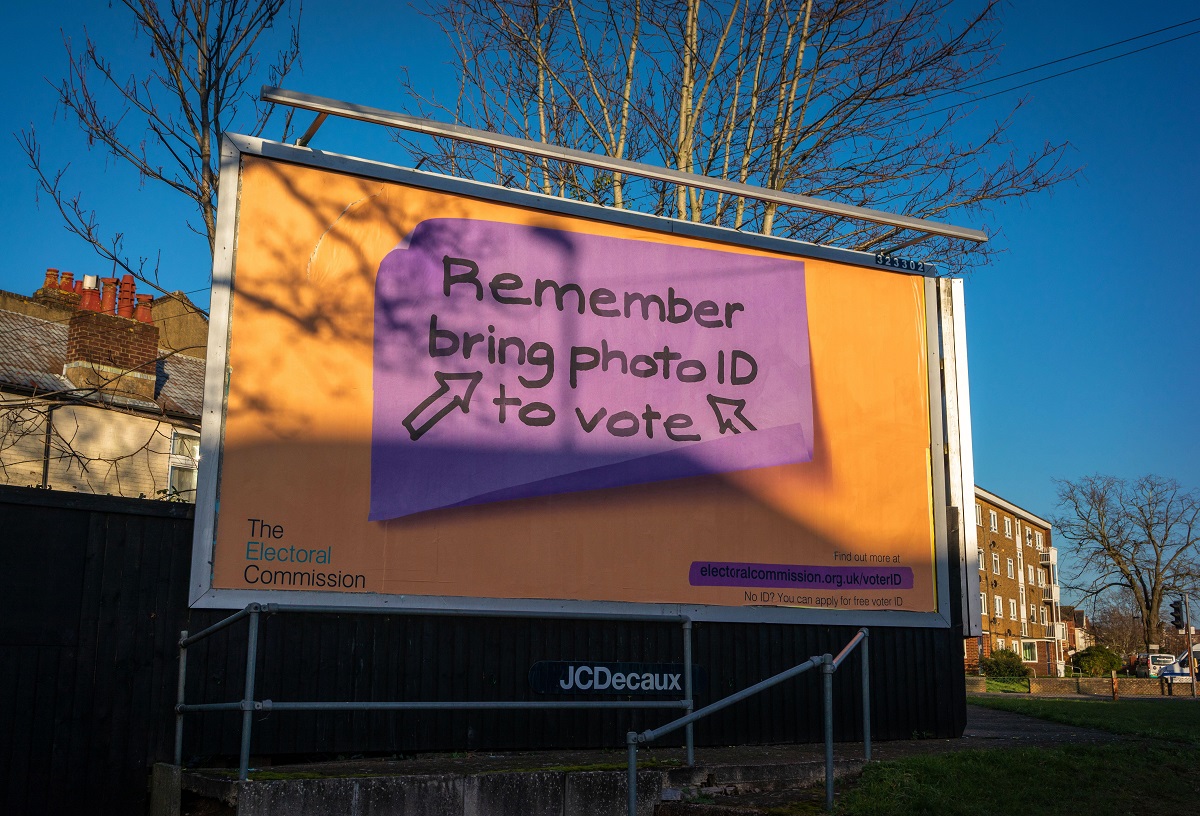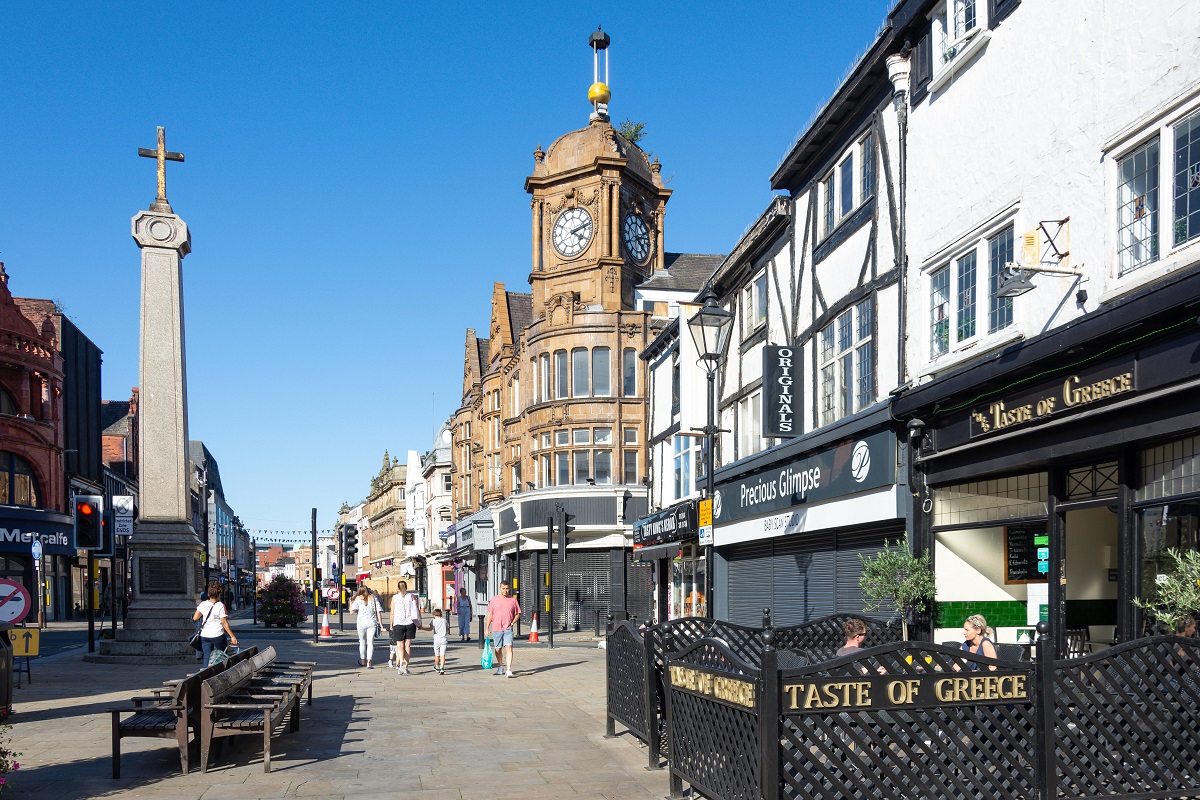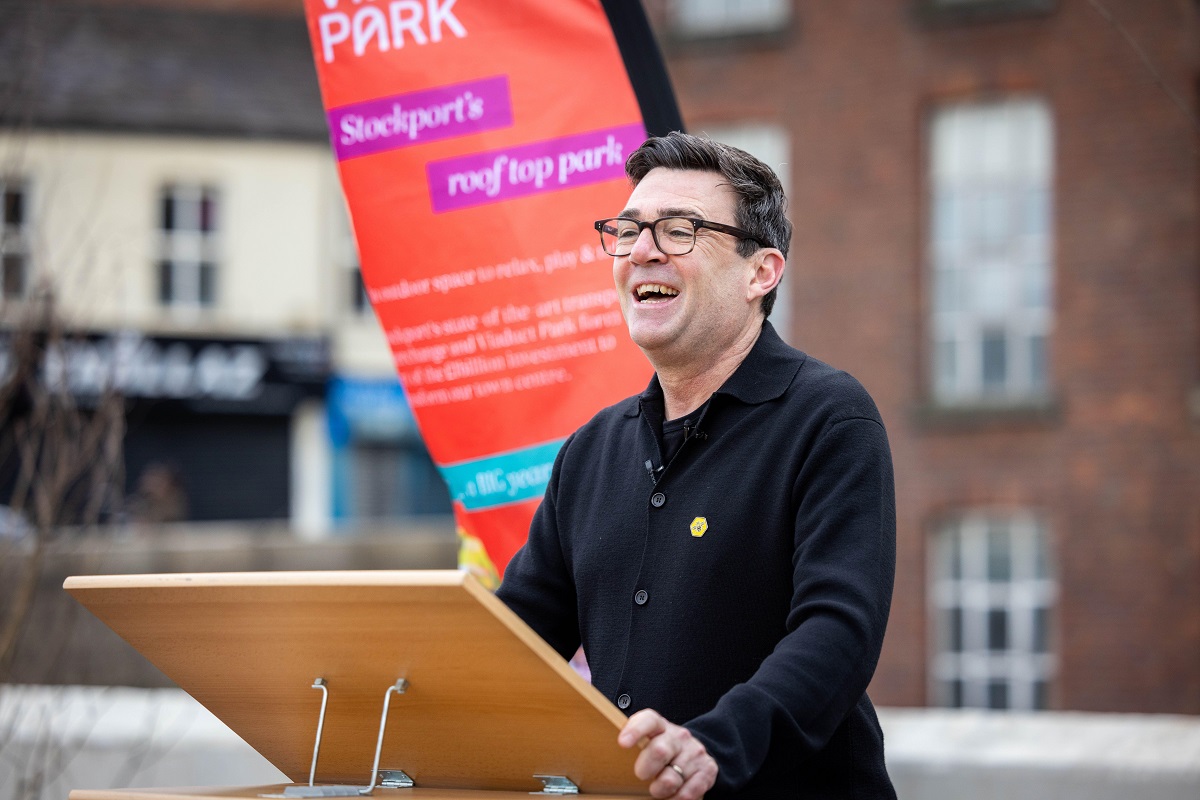Roads, bins, apathy and cuts: The political battle for Bolton
There are 21 seats up for grabs in Bolton’s local elections on 2 May - but all parties will be ultimately trying to deliver a reasonable service on 'totally savage' budget cuts
“I’ve no views on the local elections. I gave up a long time ago.”
“I’m not political at all.”
The coming local elections weren’t distracting people in Bolton town centre last Sunday.
A third, Leah Smith, said she wouldn’t be voting because she was “just not interested” and had too much going on in her own life.
“I got my voting card yesterday and I do what I do every year and just threw it in the bin,” said Smith.
On a concrete bench on the edge of a quiet Victoria Square on a rare sunny afternoon, she may have been unaware she’s sitting in a keenly contested area.
There are 21 seats up for grabs in Bolton’s local elections on 2 May. The council has been run by a minority Labour administration since last year, following four years of a Tory minority leadership. Both main parties are claiming a hand in the town centre’s regeneration.
“When we were in control we brought in over £100 million of extra grant money, primarily from central government but also from the combined authority,” says Martyn Cox, leader of the council’s Conservative group. “What we tried to do is get the regeneration moving.
“If you go into the town centre now you’ll see schemes at full swing. We thought we brought that to a head.”
Cox, a Westhoughton West and Chew Moor councillor, isn’t up for re-election this year but Labour cabinet member Sue Haworth is. She lays claim to the same territory as Cox.
“The town centres are massively important as residents want to see good results,” says Haworth. “After work, study, or in retirement, people want enjoyable things to do, nice places to eat or drink with some lovely areas to stroll and relax.
“Labour has achieved Greater Manchester Town of Culture for Bolton. People are pleased to see cranes in the skies and homes being built in Bolton and Farnworth town centre.”
Labour is defending 11 of its 28 seats on the council on 2 May, the Conservatives three out of 15. The Lib Dems have three out of seven councillors up for re-election and the Horwich and Blackrod First Independents are defending three of their six. Independent councillor Derek Bullock, forced out of the Conservatives last year over claims of a racist Facebook post, is defending the Hulton seat he has held since 2019.
A battle over regeneration may be premature. As Paul Salveson, writer, historian and Smithills resident points out: “It’s early days yet for the council and leader Nick Peel. He’s perceived to have done a competent job but there are big problems in the town centre and it will be a long while before that gets sorted.”
Two other local issues will be important for voters going to the polls: bins and roads – and they are just as contested as cranes and culture.
In February, Labour pushed through a motion to reduce the collection of beige bins, for cardboard and paper waste, from fortnightly to monthly. It blamed cuts in central government funding for councils. At the same time, a Conservative amendment to divert contingency funding towards repairing potholes was voted down.
Conservative Bromley Cross councillor Nadim Muslim, environmental services cabinet member under the previous administration, points to his track record in ordering new bin wagons and his party’s £12m additional pothole repair fund announced in 2019. He says he turned down council officers’ proposal for cuts in bin collections when he was in cabinet, insisting they find savings elsewhere.
In Bromley Cross, Turton Road and Darwen Road are particularly potholed and many bins are not collected, says Muslim, who is up for re-election this year.
“These issues are also consistent across Bolton and they have got much worse in the last 12 months, in stark contrast to the years before. I just don’t think the Labour Party has got all the right priorities.”
Howarth disagrees. “Neighbourhoods and residential areas are massively important and we are relentless about cleaning up the borough by driving down littering and flytipping, and backing volunteers who give so much to their communities,” she says.
“The bin service we inherited from the Conservative administration is being rapidly improved through the arrival of new bin wagons to replace those that break down, additional staff and ‘mop-up’ rounds to deal with missed bin collections.”
Both main parties are cautious about their chances of electoral success.
In 2019-23 Bolton was the only Conservative-led council among Greater Manchester’s ten.
Now it’s one of only two that doesn’t have a Labour majority. Despite a national polling swing to Labour, it may well struggle to gain the additional three seats it needs for an overall majority.
Meanwhile Cox acknowledges it has been a difficult year for his party nationally, and the presence of Reform UK & Bolton For Change candidates (they stand as one party in the borough) across the slate could take voters away from it.
“We’re very hopeful we can retain those three seats,” says Cox. “There are other seats that have been traditionally Conservative that we’re interested in winning but, at the end of the night, if we manage to win two or three seats that will be a good result in the circumstances.”
For the Lib Dems, defence of its three seats – in Smithills, Westhoughton North and Hunger Hill, and Westhoughton South – is a priority, says group leader Roger Hayes. “I think if we do that this year we can begin to make progress in the next election, which of course is two years away,” he says.
He says the broader issue for all parties is trying to deliver a reasonable service with the “totally savage” budget cuts imposed on the council.
“Bolton, actually, whatever the colour of the administration, has been quite well managed from a financial point of view. I think that’s more credit to the officers than the politicians. Perhaps the politicians deserve credit for not interfering too much!
“But there are problems with children’s services and with adult care services. They’re the sorts of issues you only see if you yourself have relatives who are in need of that care and support.
Roads, bins and cuts
“Everyone sees the roads - and they’re an absolute shambles, a mess. They will see the fact that we’re having problems with the bins. Money on parks is virtually non-existent.”
His party’s role is to negotiate on road surfacing, furthering the green agenda and other priorities to “make the others honest” and ensure they “don’t go back to the arrogant ways in which things were done in the past”.
On a wider level though, says Hayes, councils need to put pressure on central government – of whatever hue that turns out to be – for more money for local government and adult social care in particular. “We’ve been promised a fair funding review now for god knows how many years.”

Victoria Square in Bolton
Voters in council elections have always considered a mix of local and national issues when making their choices in the ballot box, and it can be a complex matter. Sometimes they’ll vote to give Westminster incumbents a kicking, sometimes they’ll vote for a local councillor because they like what they do even if they wouldn’t give their party a vote in a general election. Throw into the mix in Bolton this year the Israel-Gaza conflict and the Greater Manchester mayoral elections and it gets even more complex. But some strands can be discerned.
Stuart Wilks-Heeg, politics professor at Liverpool University, says voters sympathise with councils having to make cuts, rather than blaming them.
“By now we have lots of evidence because the cuts have been going on for more than a decade. Some councils have been cut much deeper than others. There’s no evidence at all that voters punish the party in power for having to implement those cuts.
“There are parts of the North West where those cuts have been brutal and I think people on the whole do see that as a national government issue.
“They understand that local councils don’t really have much choice, although they might have gripes about the choices local councils have made. But they understand why the libraries have been closing down; they understand why the streets aren’t being swept as often as they were.
“If you just look at the local elections results over the last decade, Labour has done pretty well, and they have done well in places they’ve had to cut.”
Echoing The Bolton Lead’s findings in the town centre last Sunday, Wilks-Heeg says turnout is likely to be low – as it usually is for local elections. It’s usually 30-40 per cent.
“That’s the way it is. If it’s higher anywhere that will be interesting.”
Young people staying at home?
Turnout’s lower among young people – but that’s not because they’re not political, according to Benjamin Bowman, a political sociologist at Manchester Metropolitan University who specialises in youth studies. They have the same concerns as older people but, tested to “within an inch of their lives” in education, struggling with zero-hours contracts and unable to afford housing, voting isn’t always a priority.
They may find more meaningful outlets in signing petitions, helping out at food banks or even just having political conversations with their friends. Nor, he adds, does the received wisdom that they are more left wing than older voters hold true, as shown in elections in Europe where many have voted for the far right.
“Speak to anyone of any age and they’ll tell you they don’t like politicians,” says Bowman.
“The difference is that young people tend to walk the talk.
“Older people will tend to distrust politicians, they’ll say that voting doesn’t do any good but they’ll still turn out. Young people will say they distrust politicians, they’ll think voting doesn’t do any good but they’ll think, well, let’s do something different. We’re not turning out for it.”
Turnout could also be affected by the need for voters to present voter ID, introduced last year. But Wilks-Heeg says this isn’t necessarily a concern primarily for young people.
“When it comes to the demographics, the evidence is really very clear - most young people have photo ID,” he says. “And they have voter ID for a very good reason - mostly that they want to buy alcohol! But they’re more likely to want to travel abroad, so they’re more likely to have passports, and the same is true for most members of ethnic minority groups.

"The evidence is really very clear - most young people have photo ID."
“Actually the group that tends not to have photo ID are older, white working class voters and some of the places we know where lack of voter ID is concentrated are those Red Wall seats - places like Burnley and Stoke and so on. So if voter ID has an impact it’s more likely to be in those places.
“We will hear stories of people being turned away and in some places those numbers will be significant. I hope we don’t but we probably will hear stories of voters being turned away at polling station and getting angry at staff, which really would be wrong.”
Low turnout and the fact that local elections aren’t taking place uniformly across the country are caveats in extrapolating too closely the 2 May results to a general election, says Wilks-Heeg – but nevertheless they will provide useful pointers to the national mood, he adds.
Projecting the national vote share, adjusting for those caveats, could help get a clearer sense of the Reform UK threat to the Conservatives – and possibly to Labour – for example.
“These are voters casting actual votes in actual voting stations for actual candidates. It’s not just filling in a form online for an opinion poll.
“It will give us a useful standard benchmark for where the parties are and whether opinion poll figures do look right.
“But these are elections to elect local councillors and mayors for combined authorities – all important jobs in their own right.”
Eyes on Rumworth
All eyes will be on the Rumworth ward, where Labour councillor Jack Khan is stepping down because of opposition to his national party’s policy on Gaza and its reluctance to blame Israel. The Labour candidate will now be Adia Hanif.
Gaza throws an international element into the local elections mix and will hurt the Labour vote through people switching parties or staying at home – in Rumworth and other wards with large Muslim communities. But it remains unclear whether it will be decisive in any seat.
In nearby Pendle the resignation of 20 Labour councillors contrasts with the sole case of Khan, who praised his local colleagues.
Labour cabinet member Sue Howarth says: “Gaza features notably for the elections this year. A good number of voters have already written to MPs in parties that they have been or are in disagreement with.

“These are elections to elect local councillors and mayors for combined authorities – all important jobs in their own right.”
“Many of my colleagues are outstanding people who feel this issue deeply and I am proud to work with them every day.”
Benjamin Bowman, a political sociologist at Manchester Metropolitan University, believes the significance of Gaza in these elections is in part a reflection of the limitations of the British democratic process, in part a reflection of the “polycrisis” people face of other conflicts such as Ukraine and the higher cost of living in a “messed-up world”.
They have only the limited response of putting a cross in a box every once in a while.
“People very connected,” he says. “They know their communities, they know world news, they have loads of information coming in but only limited bandwidth to process it – a vote.
“You’ve got this wealth of stuff and you’re trying to push it though this tiny tube.”
The Burnham effect
Voters in Bolton also get to elect the Greater Manchester mayor, and Andy Burnham is expected to comfortably win a third term. Labour councillors in the town are hoping for a halo effect.
Labour cabinet member Sue Haworth points to his efforts to build a thriving digital industries sector, to tackle digital poverty, and support for a real living wage and better working conditions.
“The training provider Growth Company helps small business, social enterprise and some self employed workers in my council ward under Covid,” she says. “A young people’s travel pass continues as a tool in the box to gain children wider access to careers ideas and education.
“Homelessness seen on the streets of towns would be far worse without his commitments.”
Nadim Islam, Conservative Bromley Cross councillor and chair of the Greater Manchester Combined Authority overview and scrutiny committee, takes a different view.
“It’s an Important election,” says Muslim. “People probably see it as a foregone conclusion but our candidate Laura Evans is popular even if it’s hard to be a popular Conservative in Greater Manchester.”
Evans, who stood against Burnham in 2021, was selected by the Conservatives this time around after the previous candidate, Dan Barker, defected to Reform UK.
Islam says: “She’s always been consistent in her views, for example on the clean air zone.”
He claims Burnham blamed central government for the controversial proposal for a charging clean air zone but actually only backed down from it when he realised the extent of local opposition.

Andy Burnham is expected to comfortably win a third term
Muslim also criticises the mayor’s record on rough sleeping and policing.
“Time and again these pledges Burnham has made, he’s failed on. Laura Evans would be great at doing the job.”
Hyper-local Bolton
Bolton has an unusually strong presence of hyper-local parties on the council.
Horwich and Blackrod First Independents hold all the seats in the two wards where they stand, and are well organised.
Victoria Rigby is up for re-election in Horwich North, where there is also a contest for Craig Rotheram’s seat. He stepped down last month because of early onset Alzheimer’s disease.
In Horwich South and Blackrod, Samantha Williamson is standing for re-election.
The picture is more complicated in Kearsley, redolent for older readers of Monty Python’s People’s Front of Judea-Judean People’s Front split.
Melanie Livesey is the councillor facing re-election. She was elected as a member of One Kearsley, which split from Farnworth and Kearsley First in 2020. But after last year’s local elections, One Kearsley founder Paul Heslop resigned and Livesey and fellow councillor Debbie Newall joined Labour.
Those former Labour voters who felt ignored by their party and voted in the One Kearsley councillors might be forgiven for being annoyed, and that may affect the election result.
“Usually when hyper-local parties break through in significant numbers, something’s gone wrong with the local party system,” says Liverpool University politics professor Stuart Wilks-Heeg. “It could be that there was one-party dominance or that there’s been been some sort of local scandal.
“Most are short run, quite ephemeral and don’t achieve much. But they can be a kick up the backside. They’re fascinating, they do pop up everywhere and they’re unpredictable.”
You can see the previous newsletter we sent to our subscribers here
The Lead is now on Substack.
Become a Member, and get our most groundbreaking content first. Become a Founder, and join the newsroom’s internal conversation - meet the writers, the editors and more.





